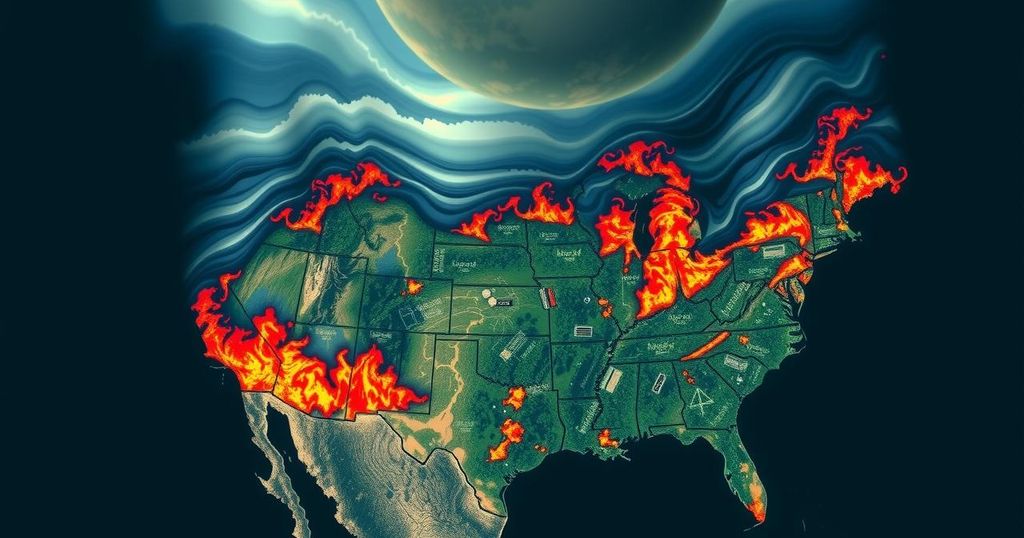Impact of Climate Change on Voting Behavior: Insights from Research

Research indicates that climate change and its disasters have minimal influence on voting behavior in the U.S., particularly due to misinformation and identity politics. Lawrence Hamilton notes that while younger individuals are more likely to recognize human responsibility for climate change, older voters are less adaptable in their views. The potential for climate issues to impact future elections may grow as younger voters gain prominence in the electorate.
Recent research indicates that climate change and its associated disasters do not significantly alter voting behaviors in the United States, particularly during election seasons. Lawrence Hamilton, a researcher at the University of New Hampshire who has studied public perception of climate issues for over a decade, observes that, despite prior increases in climate change awareness, this momentum diminished post-pandemic, largely due to the proliferation of misinformation regarding government and scientific claims. Hamilton emphasized that the increasing prevalence of misinformation is a substantial factor contributing to the observation that extreme weather events, such as hurricanes Helene and Milton and the recent Davis Fire, are failing to influence electoral outcomes. He stated, “there’s this connection between certain positions, such as rejecting science on climate change, and your personal, deep identity. And once that connection is made, it’s really hard to uncouple.” This phenomenon appears to pertain more specifically to individuals aged thirty and over, as data indicates that those in their twenties are generally more amenable to changing their opinions on pressing issues. Hamilton further asserts that younger generations tend to attribute the causes of climate change to human activities and express greater concern regarding escalating climate-related disasters. Thus, he posits that climate change as an electoral issue may gain more relevance in future elections, particularly in regions of the Mountain West. The Mountain West News Bureau, a collaborative initiative involving several public radio stations across the region, produced this comprehensive examination of public sentiment towards climate issues and their implications for electoral politics. Ultimately, the intersection of personal identity with political positioning renders it challenging for voters to adjust their positions on climate change, despite the evidence presented by recent climate events. However, the evolving attitudes of younger voters may suggest a potential shift in this dynamic, impacting future electoral behaviors concerning climate change.
The discourse surrounding climate change and its political implications has become increasingly complex as misinformation has proliferated in recent years. Traditionally, awareness of climate issues was on the rise, but the advent of the COVID-19 pandemic and related conspiracy theories disrupted this trend. Investigations into public attitudes reveal significant generational differences, particularly regarding perceptions of responsibility and concern for climate-related disasters. Understanding these dynamics is crucial for anticipating electoral shifts in response to climate change in various demographic groups nationwide.
In conclusion, the findings suggest that misinformation and the deep-rooted connection between identity and political belief continue to impede shifts in voter attitudes regarding climate change. While recent climate-related disasters have produced some concern, they are unlikely to significantly sway electoral outcomes. Nevertheless, the awareness and attitudes of younger generations indicate that climate change may become a more prominent issue in future elections, particularly in specific regional contexts such as the Mountain West.
Original Source: www.kanw.com






